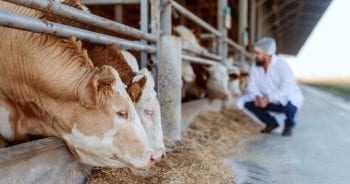15 Sept 2020
New committee will handle all registration matters, including in relation to Brexit and on issues around regulating associate members of RCVS.

Image © dusanpetkovic / Adobe Stock
The concept of vet-led teams featuring fully regulated or recognised paraprofessionals has taken a huge leap forward.

The RCVS is setting up a new committee with a wide remit to review and advise on veterinary registration policies, including the creation of new categories of associate college members.
The development of hub-and-spoke vet-led teams is a key strategy of the RCVS and organisations such as the BVA, and is enshrined in the profession-wide Vet Futures Action Plan.
A number of reforms to the Veterinary Surgeons’ Act (VSA), suggested in a Defra review and approved by the RCVS last year, paved the way for a legislative underpinning of paraprofessionals working within vet surgeon-led teams.
The changes mean the RCVS could regulate certain paraprofessionals by making them associates of the college – the designation that allowed for full regulation of VNs. Other paraprofessionals with a separate regulatory body could receive accredited status from the RCVS.
The college has been reviewing how to take associate member proposals forward, and has opted to create a registration committee for the first time, with a full remit to cover all aspects of registration.
Members of RCVS council unanimously backed adding the committee to the college’s existing structure, which, additional to advising on new associate categories, will review and monitor all registration matters for vets and RVNs in line with the VSA and RVN legislation.
It will also be ideally placed to handle any registration matters prompted by the UK’s exit from the EU.
RCVS registrar Eleanor Ferguson told the full meeting of RCVS council that discussions had been held with groups including veterinary technicians, or vet techs, about becoming associates of the college.
Speaking during the meeting, she said: “The catalyst for all of this arises from the decision council made last year with a view to taking forward the regulation of paraprofessionals within the vet-led team, either under the associate model or via accreditation, and since that time we have been having discussions with a number of groups who might be in position to take things forward, and it would have to, at this stage, be the groups where there was no requirement for legislative change.
“One of these is vet techs, who are in the farming side of things, and they have been doing a lot of work over the past year or so pulling themselves together in a group.
“They are trying to get a course together, and they have come to us and are very keen to come forward as associates of the college, so in the same manner as veterinary nurses.”
She explained to members the college needed to agree a formal mechanism for advising and recommending any changes, but no obvious fit existed within the existing committee structure.
Councillors backed the formation of a committee comprising the president, vice-presidents, college treasurer, two vet members, a VN member and a lay member of council or VN council.
In a statement after the meeting, a college spokesman said: “The registration committee has been set up to provide an enhanced governance structure for the processes around registration of veterinary professionals, as well as monitoring various other aspects of registration.
“We envisage that one of its key future roles will be making recommendations for the formal recognition of new categories of associate members of the RCVS.”